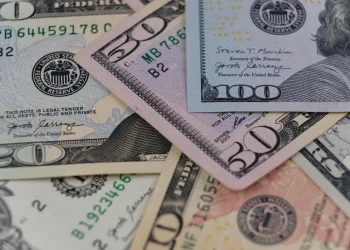The Financial Times Stock Exchange 100, usually known as the FTSE 100, is an index of the stock market that measures the performance of the top 100 businesses listed on the London Stock Exchange. The index, which measures the performance of well-known British equities and the stock market as a whole, is a free-float capitalisation-weighted index.
Why is investing in the FTSE 100 important?
The FTSE 100 is one of the most important stock market indices in the world and investors constantly watch it. The index is made up of big, well-known businesses that are referred to as blue-chip companies. These businesses are considered less risky investments than smaller, less established ones.
When was the FTSE 100 launched?

The FTSE 100 was launched on January 3, 1984. It was created by the Financial Times and the London Stock Exchange as a way to measure the performance of the largest companies listed on the London Stock Exchange. It can sort of be viewed as the UKs version of the S&P 500.
How can I invest in the FTSE 100?
Investing in the FTSE 100 can be done in a number of ways. Like the name of our website ETFs (Exchange-traded funds) are an easy way. We explain this in more detail on our ETFs-specific pages, but these assets mirror the performance of the index and are one of the most widely used methods. These funds replicate the performance of the index by holding the same stocks in the same ratios. ISF, F100, and UKX are some of the most well-known ETFs that track the FTSE 100. Although it is always advisable to consult a professional before making an investment, now that you are more knowledgeable about ETFs, this can be an excellent place to start.
Another way to invest in the FTSE 100 is through derivatives. The London Stock Exchange (LSE) offers futures contracts that track the index, which can be traded on the exchange floor or on LSE’s Turquoise platform. The London International Financial Futures and Options Exchange (LIFFE) also offers options on the FTSE 100 index, as well as on FTSE 100 index ETFs, inverse ETFs, and leveraged ETFs. These are more complicated assets and are best avoided for novice investors, once you are more comfortable with investing and in consultation with a financial advisor, these would be a great way to add some sophistication to your investments.
When was the FTSE 100 created? The FTSE 100 was created on January 3, 1984, by the Financial Times and the London Stock Exchange. It was created as a way to measure the performance of the largest companies listed on the London Stock Exchange.
Which businesses are included in the FTSE 100?
The FTSE 100 is made up of the 100 largest companies listed on the London Stock Exchange. These companies are considered to be blue-chip stocks and are considered to be less risky investments compared to smaller, less established companies. The index is a free-float capitalisation-weighted index and is considered to be one of the best gauges of the performance of prominent British equities and the stock market overall. Some companies included in the FTSE 100 are BP, Royal Dutch Shell, HSBC, GlaxoSmithKline, and Unilever.
Stay informed and make smart investment decisions by reading our previous post on what is the S&P 500 and why it’s important. Simply visit the link to access it now.







